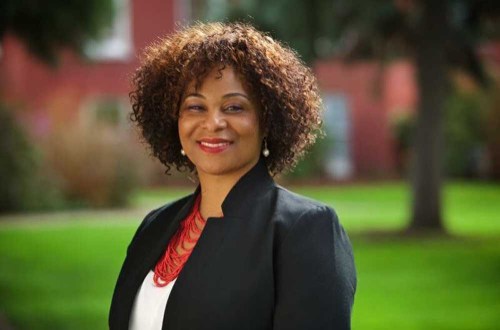Bailey’s Bill reaches the finish line after difficult journey
Published 7:00 am Tuesday, June 29, 2021

- Bynum
SALEM — With several strokes of her pen, Gov. Kate Brown signed Bailey’s Bill into law.
The bill, named for Weston-McEwen High School student Bailey Munck, increases penalties for criminal sexual contact with an underage victim if the offender was the victim’s teacher. Munck, now 17, testified to the Oregon Senate and House judiciary committees, telling of sexual abuse in 2019 during a volleyball road trip by Andrew DeYoe, an English teacher and also a scorekeeper for the volleyball team.
Sen. Bill Hansell, R-Athena, who sponsored Senate Bill 649, likely did some mental handsprings and backflips when Brown signed the legislation Wednesday, June 23. The bill, despite attracting no vigorous objections, nearly ended up in the place where bills go to quietly die when they don’t make it out of committee.
“We had to be tenacious in ways we never expected to move this bill,” Hansell said.
Hansell took a few minutes to recap the fraught journey of his bill. First stop for the proposed legislation was the Oregon Senate’s judiciary committee, where Chairman Floyd Prozanski would decide whether to schedule the bill for a hearing. Hansell said Prozanski, a practicing prosecuting attorney, was initially skeptical about whether such legislation was needed.
When the bill still wasn’t scheduled within days of the deadline, Hansell got worried. Conversations were had and eventually the bipartisan bill got a hearing. On March 25, Munck testified before the committee via video chat.
“What is the significant difference between a teacher and a coach?” Munck asked senators during the hearing. “Do coaches somehow carry more authority than a teacher might?”
After pleading guilty, Munck’s abuser spent only two days in jail and received five years probation. He did not have to register as a sex offender. If he had been her coach rather than her teacher, he would have received up to five years in prison.
The committee voted to send the bill to the Senate floor with a do pass recommendation. But it wasn’t a slam dunk. Three Republican senators on the committee, Sen. Dallas Heard of Myrtle Creek, Sen. Dennis Linthicum of Klamath Falls and Kim Thatcher of Keizer routinely vote against every bill that comes before the committee as a way to express their displeasure about the closure of the Capitol. If one Democrat is gone, bills won’t advance. That day, all the Democrat senators were in attendance. Another hurdle jumped.
On the floor, the bill passed unanimously and headed to the House.
There, the bill hit another wall. Rep. Janelle Bynum, chair of the House Judiciary Committee, seemed ready to doom the proposed legislation by not scheduling it for a hearing. If nothing happened by the deadline, the bill was officially dead.
The other members of the committee dusted off a seldom-used rule to force a hearing. They invoked House Rule 8.20, which states if a majority of committee members request a hearing in writing, the chair must schedule it within five days. When the members signed a letter requesting a hearing, Bynum obliged.
The next obstacle came in the form of two amendments proposed by Rep. Marty Wilde, D-Eugene, that would have replaced most of the verbiage with different language that reflects Wilde’s interest in starting a discussion on sentencing reform. During the hearing, Wilde spoke about that, but acknowledged he planned to vote for Bailey’s Bill sans amendments. All 10 members voted aye.
When the bill reached the House floor, it passed unanimously. On June 23, Gov. Brown signed it into law.
Munck heard the news on June 26.
“I felt really happy and sort of relieved,” she said. “There were so many obstacles. I’m really happy that a teacher can now be prosecuted differently than DeYoe.”
Hansell attributed the bill’s passage to “tenacity, teamwork and truth.”
“The bill was about dealing with the abuse of children and closing a loophole in the law,” he said. “It was a fight to the bitter end to get that embodied in Oregon law.”
He pointed to a team of supporters that included Munck, Umatilla County District Attorney Dan Primus, former Umatilla County Chief Deputy District Attorney Jaclyn Jenkins, retired Athena-Weston teacher John Bartron, Rep. Bobby Levy, who shepherded the bill through the House, and and co-sponsor Sen. Kathleen Taylor, D-Milwaukie.
He reserved his biggest praise for Munck.
“She was the star of the team,” Hansell said. “Bailey’s willingness to step up was huge. Not everybody could have done it.”
The senator said he spoke to the governor about the possibility of doing a ceremonial signing with Munck in attendance.
“I told her, ‘I want you to meet her and her to meet you,’” Hansell said. “She said, ‘Absolutely.’”
He said he believes the signing likely will take place in the fall during the Pendleton Round-Up. If that happens, Munck said she would make the trip back to Pendleton from Moscow, Idaho, where she will be attending the University of Idaho to study criminal justice.









